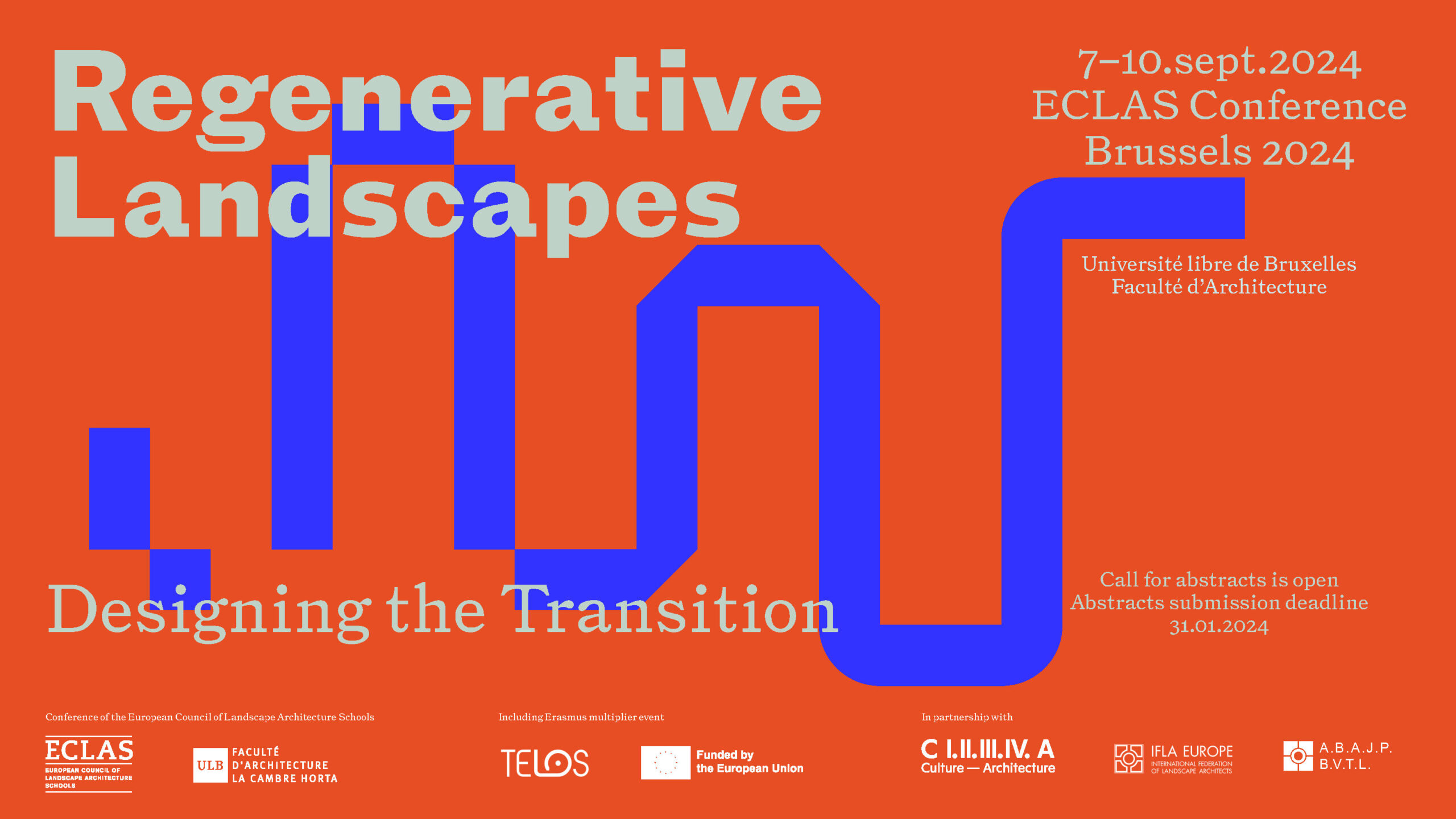Abstract Submission
 |
 |
 |
 |
| Abstract submission
Information concerning the submission of an abstract. |
Submission of papers
Information about submitting papers. |
Submission of posters
Information about submitting posters. |
Submission link
|
Select Sub-theme
Abstracts are invited for the conference sub-themes: Landscape Design, Construction/IT, Landscape Planning, and Planting Design.
Select paper type
As ECLAS is an organisation representing schools, we are not only interested in receiving research-based papers but also those covering theory development, critical reflection of practice and papers about teaching approaches and methods.
- Research papers: These are papers which present results of new research no published elsewhere. The abstracts need to refer to the research question, the context and theory of the problem, the methodology used, the main results and some broad conclusions supported with up to ~5 key references.
- Reflective papers: These are papers offering deep reflection, appraisal and critique of some aspect of landscape architecture: projects by specific people, programmes, trends, movements etc. The abstracts need to refer to a question which is raised, the context of the reflection, some original observations and analysis and a number of key conclusions supported with some references as above.
- Theoretical papers: These are papers which aim to advance theory by exploring and arguing aspects of either current theory or by advancing new theories. The abstracts need to raise a question about the context of the specific theory, elaborate on the theory, present a summary of the main arguments and present a number of key conclusions supported by some references as above.
- Teaching and learning papers: These are papers dealing with the advancement of teaching and learning practice in landscape architecture. The abstracts need to present an issue of concern in teaching and then demonstrate by reference to existing practices, novel approaches or critique of existing methods, some solution to the issue raised, with some key conclusions and some references.
Full paper
A full paper will be presented in the respective session and will be allowed 20 minutes plus questions. A PowerPoint or similar presentation is expected during the conference, although alternative methods may be possible. The full paper itself should be 1,500 words maximum plus illustrations.
Poster
Posters will be presented during the Poster Session as part of the conference. They should be A0 in format and contain the main context of the project, attractively presented. Posters will be included in size-reduced form as part of the proceedings.
Prepared Abstract
Contents:
- Title
- Author’s information
- Keywords
- Topic areas
- Main text
- References
Title: The title of the abstract should be on the first line(s). The title should indicate the topic of the abstract. It should be informative and short. The maximum length is 13 words or 100 characters.
Author’s information: To be filled-in through the online form.
Keywords: Up to five keywords are permitted, separated with “;”
Words from the title of the article may be included in the key words. Each keyword should be a useful point of entry for a literature search.
Topic Areas: If you have been invited to submit an abstract by someone proposing to organise a themed parallel session, please check the appropriate button. If not, then check “not for a special session”.
Main text: The abstract’s main text should be no longer than 500 words. It should follow immediately after the list of keywords on the next line. The text should provide a brief summary, including objectives of paper/poster, examples, major conclusions and consequences for education/research. The font should be Calibri and 11 point in size (single spaced text). Paragraphs must be separated by a single line space.
References: The abstract should include no more than 5 major literature references. The bibliography should be ordered alphabetically, references should be in the same format as the following examples:
Journal article:
Greco, A.J. and Swayne, L.D., 1992. Sales response of elderly customers to point-of-purchase advertising. Journal of Advertising Research, 32 (5), 43-63.
Article within a book:
Wright, P., 1986. Reactions to an Ads contents versus judgements of Ads impact. In: J. Olsen and K. Sentis, eds. Advertising and consumer psychology. Vol. 3. New York: Praeger, 1986, 108-117.
Conference paper:
Silver, K., 1989. Electronic mail: the new way to communicate. In: D.I. Raitt, ed. 9th international online information meeting, London 3-5 December 1988. Oxford: Learned Information, 323-330.
